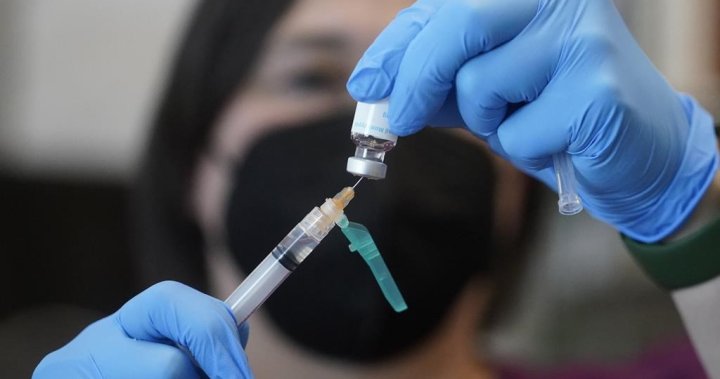
U.S. to administer smaller doses of monkeypox vaccine to stretch limited supply
Global News
The highly unusual step is a stark acknowledgment that the U.S. currently lacks the supplies needed to vaccinate everyone seeking protection from the rapidly spreading virus.
U.S. health officials on Tuesday authorized a plan to stretch the nation’s limited supply of monkeypox vaccine by giving people just one-fifth the usual dose, citing research suggesting that the reduced amount is about as effective.
The so-called dose-sparing approach also calls for administering the Jynneos vaccine with an injection just under the skin rather than into deeper tissue — a practice that may rev up the immune system better. Recipients would still get two shots spaced four weeks apart.
The highly unusual step is a stark acknowledgment that the U.S. currently lacks the supplies needed to vaccinate everyone seeking protection from the rapidly spreading virus.
That includes 1.6 million to 1.7 million Americans considered by federal officials to be at highest risk from the disease, primarily men with HIV or men who have a higher risk of contracting it. Vaccinating that group would require about three times more full doses than the roughly 1.1 million that officials have made available.
The White House’s monkeypox response coordinator, Robert Fenton, said the plan would help the U.S. “stay ahead of the virus.”
“It’s safe, it’s effective, and it will significantly scale the volume of vaccine doses available for communities across the country,” Fenton told reporters.
The Biden administration declared monkeypox a public health emergency last week in an effort to slow the growing outbreak that has infected more than 8,900 Americans. Officials announced a separate determination Tuesday that allows the Food and Drug Administration to expedite its review of medical products or new uses for them, such as the dose-sparing technique for Jynneos.
The FDA authorized the new approach for adults 18 and older who are at high risk of monkeypox infection. Younger people can also get the vaccine if they are deemed high risk, though they should receive the traditional injection, the agency said.











